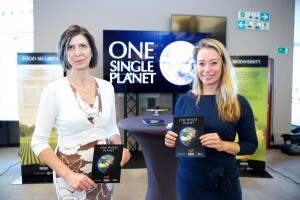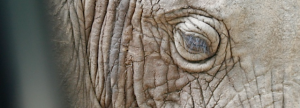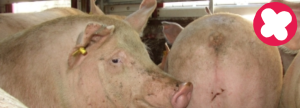Worldlog Semena 28 – 2015
Na quarta-feira passada a Câmara Baixa votou sobre a nova Lei Natureza e todas as emendas e moções que têm sido apresentadas sobre esta lei. Infelizmente não obtivemos um maioria apesar das promessas eleitorais de entre outros o PvdA (Partido do Trabalho) que faz parte do governo. Se bem que o pensar tradicional já levou a boas promessas, falta ainda a coragem para em seguida realizar tais promessas. Vai ser continuado!
Na semana passada o nosso filme One Single Planet foi exibido em grandes telas no salão central do Parlamento Europeu em Bruxelas. A mensagem que One Single Planet transmite é diferente da que os políticos convencionais costumam ouvir, a saber: um tratamento diferente de nosso planeta é absolutamente necessário. “Se todo mundo vivesse como o europeu médio, nós precisaríamos de quatro globos terrestres. Mas nós vivemos num único planeta e o planeta vive conosco,” disse o membro do Parlamento Europeu do Partido para os Animais Anja Hazekamp no seu discurso durante a abertura da exposição.
Karen Soeters, a directora do departamento científico de nosso partido, naturalmente também esteve presente na abertura e no seu discurso ela se aprofundou nas consequências de nosso actual estilo de vida: “O actual impacto dos seres humanos em nossa terra é descrito por cientistas como ‘perigoso’. Crescentes fluxos de refugiados e conflitos armados são previstos como consequências da mudança do clima que o ser humano está causando neste momento.” É fantástico que One Single Planet foi exibido no Parlamento Europeu. Estou muito orgulhosa!
 Anja Hazekamp e Karen Soeters na abertura da exposição One Single Planet no Parlamento Europeu
Anja Hazekamp e Karen Soeters na abertura da exposição One Single Planet no Parlamento Europeu
Nos meus weblogs eu já mencionei diversas vezes que nós queremos proibir a importação de troféus de caça como marfim, peles de tigres e cornos de rinocerontes. Esta importação legal sob o título de ‘propriedade pessoal’ é abusada por criminosos. A moção que nós apresentamos juntamente com o VVD (Partido Popular para Liberdade e Democracia) para uma proibição de importação obteve o apoio da maioria na Câmara! Agora o governo deve fazer um plano de acção para combater a importação de troféus de caça tanto em nível nacional quanto europeu. E isto é extremamente necessário pois os crimes contra a vida selvagem são uma séria ameaça à bio-diversidade. Cada ano 30.000 elefantes são caçados furtivamente. Na Africa do Sul 1215 rinocerontes foram pilhados no último ano e na África Ocidental ainda vivem somente 400 leões selvagens.
No momento está havendo uma verdadeira onda de calor na Holanda. Por isso a saída de veículos de transporte com animais deve ser proibida em dias muito quentes. Às vezes os animais esperam por horas a fio sem água em caminhões de gado numa passagem de fronteira ou no estacionamento de um matadouro. O transporte durante temperaturas elevadas muitas vezes resulta em animais superaquecidos, ofegantes pela sede, amontoados um em cima do outro. Com 25 graus Celsius os animais já sofrem de sufocação e de esgotamento. Estas imagens mostram a intensidade do sofrimento dos animais em altas temperaturas. Eu acho isto inaceitável e quero uma proibição para transportes de gado em dias com temperaturas acima dos 25 graus Celsius. A minha moção para regras mais rigorosas acerca dos transportes de animais apesar de ter sido aceita continua ainda sem execução pela Secretária de Estado. Somente alguns controlos não bastam nesses dias arriscados e portanto eu faço um apelo a Secretária de Estado para finalmente executar a nossa moção!
Entrementes começaram as férias parlamentares de verão. Neste período não publicamos o Worldlog, portanto de bom grado, até setembro!
Saudações, Marianne
Last Wednesday, the Lower House voted on the new Nature Act and all amendments and motions submitted in its regard. We unfortunately failed to obtain a majority for it, despite the election promises of the party in government, the Labour Party (PvdA), and others. Traditional thinking has indeed resulted in good promises, but is has not yet resulted in the guts to make them come true. To be continued!
Our film One Single Planet was shown on large screens in the central hall of the European Parliament in Brussels last week. One Single Planet conveys another message than conventional politicians in the European Parliament are used to: namely, that a different approach to our planet is imperative. “If all people lived as an average European, we would need to have four globes. But we have to make do with one single planet, and the planet with us,” said Party for the Animals (PvdD) MEP Anja Hazekamp in her speech at the opening of the exhibition.
Naturally, Karen Soeters, the director of our party’s scientific bureau, also attended the opening and focused in her speech on the consequences of our present lifestyle: “The current impact human beings have on the earth is described by scientists as ‘dangerous’. Increasing refugee flows and armed conflicts are predicted as consequences of the climate change currently caused by mankind.” It is great that One Single Planet was shown in the European Parliament. I am very proud!
 Anja Hazekamp and Karen Soeters at the opening of the One Single Planet exhibition in the European Parliament
Anja Hazekamp and Karen Soeters at the opening of the One Single Planet exhibition in the European Parliament
I have frequently spoken in my weblogs about our wish for an import ban on hunting trophies, such as ivory, tiger skins and rhino horn. This legal import under the denominator of ‘personal property’ is abused by criminals. The motion for an import ban we submitted together with the People’s Party for Freedom and Democracy (VVD) has received the support from a parliamentary majority! The government must now make a plan of action to combat the import of hunting trophies, at both national and European level. And that is sorely necessary, because wildlife crime is a serious threat to biodiversity. Each year, up to 30,000 elephants are poached. In South Africa, 1,215 rhinos were poached over the past year and in West Africa there are only 400 wild lions left.
There is a proper heat wave going on in the Netherlands. Therefore, we need to have an exit ban on animal transport on days that are too hot. Animals sometimes stand waiting for hours in cattle cars before a border crossing or on a slaughter house car park, without any water. Transport during high temperatures often leads to overheated animals, crammed together and panting with thirst. Even at 25 degrees Celsius, animals have trouble breathing or suffer from exhaustion. These images show how seriously animals suffer from high temperatures. I find this unacceptable and I want to see a ban on livestock transport on days when temperatures exceed 25 degrees Celsius. My adopted motion for stricter rules on animal transport is still not carried out by the State Secretary. Checks only are not enough on these kinds of high-risk days, so I urge the State Secretary to finally carry out our motion!
The summer break has begun. There will be no Worldlog in the summer, so I will see you again in September!
Greetings, Marianne

